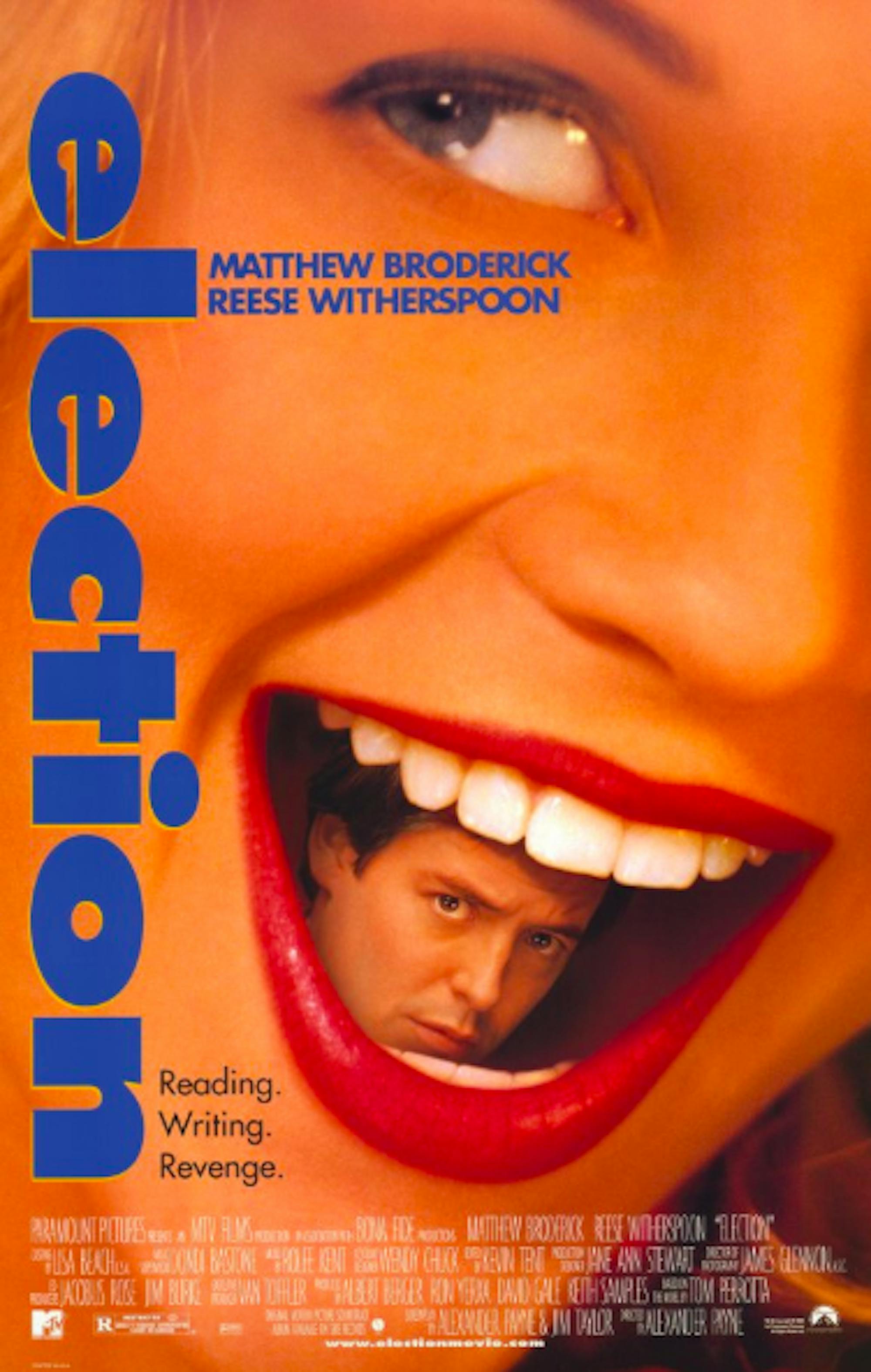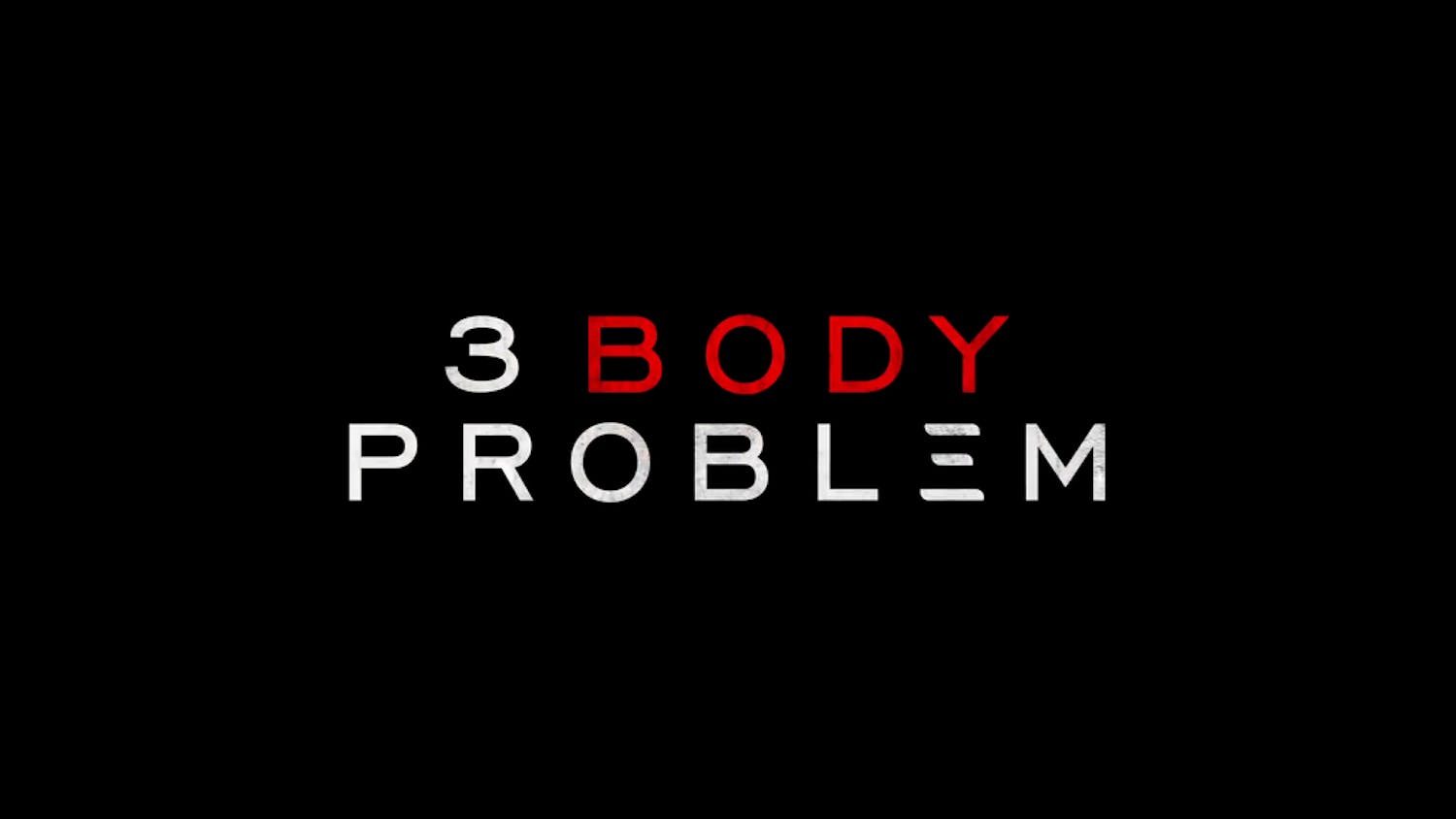In the original trailer of “Election” (1999), the narrator speaks the words, “if you are one of the millions of Americans who still believes that honesty, integrity and fidelity are the cornerstones of our democracy, we suggest you wait for another preview before getting your popcorn.” If the lessons in “Election” are to be believed, potentially the only things keeping our elected governments together are pride and anger. But revisiting “Election” two decades later reveals some surprising ways our political world has and has not changed.
The plot of “Election” centers around an election for high school president in suburban Omaha, Neb.which is presided over by the beloved teacher Jim McAllister (Matthew Broderick). Tracy Flick (Reese Witherspoon), an abrasive know-it-all who is clearly the most qualified for the position, runs unopposed until Jim convinces dimwitted but sweet jock Paul Metzler (Chris Klein) to run against her. Why? Tracy is frankly so annoying that it’s hard not to want to humble her, but more importantly, she had an affair with Jim’s best friend and fellow teacher Dave Novotny (Mark Harelik) which led to him getting fired. Jim still holds a grudge. The election only heats up after Paul starts dating Lisa, the ex-girlfriend of his younger sister Tammy, and Tammy enters the election out of jealousy.
If nothing else, Tracy is the only one -- besides Paul, who simply doesn’t know any better -- who is using the political system for a reason other than vindication. She is arrogant and self-centered, the kind of person who becomes a leader only to force everyone else to pay attention to her. (“I volunteered for every committee, as long as I could lead it.”) She is stiff and artificial, but well-suited to leadership, engaging in multiple extracurricular activities while getting perfect grades and lapping up all the ambition passed down from her successful mother. And because of that enviable perfection tinged with arrogance, she represents the quintessential female politician who men love to hate. Her character is likely how Hillary Clinton’s most ardent critics see her. Both women were qualified for the presidency, at least in terms of experience, so the parallel between the two is impossible to miss today. Clinton’scampaign was plagued by controversy, ranging fromemails to the Benghazi attacks. But, as we see in Tracy, you cannot make an omelet without breaking a few eggs. The kind of person who would take enjoyment and motivation from defeating others, who works within a system and will mold their entire personality to reign it -- indeed, the kind of person who is qualified for a popular position is rarely the kind of person we actually like enough to vote for.
Here and now in Massachusetts, Charlie Baker is the most popular governor in the United States and will stay that way after the election, if the polls are to be believed. Yet, as a Massachusetts resident who typically votes on a Democratic ballot in the primaries, this writer has been bombarded nonstop by ads for Charlie Baker on YouTube, in the mail and even through text message. If Tracy had run for high school president in the internet age, she doubtless would have run a more aggressive campaign -- if an anonymous gossip didn’t spill the beans about her affair first.
That brings us to one of the biggest differences between the environment of “Election” and our current political climate: the role of secrecy. In “Election,” almost every character has a secret behind their ambition, usually involving affairs. In particular, the Jim who lectures about morals and ethics and wins Paul over with rhetoric about the virtues of democracy is the same Jim who judges a teenage girl for sleeping with his adult friend, descending into corruption in every aspect of his life. If Tracy’s affair got out to the student body, her social reputation would be ruined, as Jim’s was when caught by students stealing ballots after the election. By that point in the movie, Tracy and Jim are all but blackmailing each other. The interlocking secrets and subterfuges of the characters add to the fun of the movie, giving legitimate -- and juicy -- stakes to a rather useless school election; the impression given is that if these secrets got out, the entire facade of the school democracy would collapse.
The problem is that the world today is inundated everywhere with information. It is getting harder and harder to hide scandals, and political parties have fine-tuned the art of digging up dirt on opponents -- like in high school, Americans remain particularly intrigued when this dirt involves sex. But even in this age of information, the American people seem to handle it differently than they used to. When then-presidential candidate Donald Trump’s “grabbing” comments came out, this writer and her friends were convinced that the scandal would be the final blow to his campaign. And yet, it was not. Even with the average person having more technological capabilities than ever in history, a growing number of people seem convinced the world is flat. Just recently, Trump’s lawyer and head cheerleader Rudy Giuliani admitted it best, “[t]ruth isn’t truth” anymore, but instead “somebody’s version of the truth.” Our country has a broken relationship with objectivity. But as long as adults in power sexually harass minors and women in power are perceived as annoying, “Election” will resonate.






